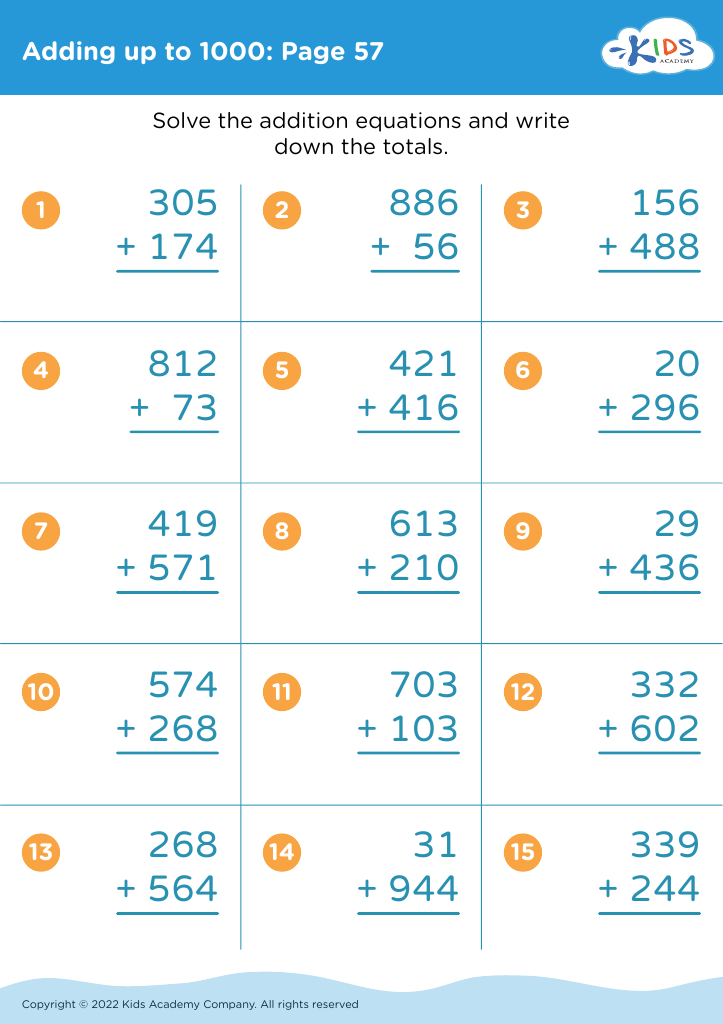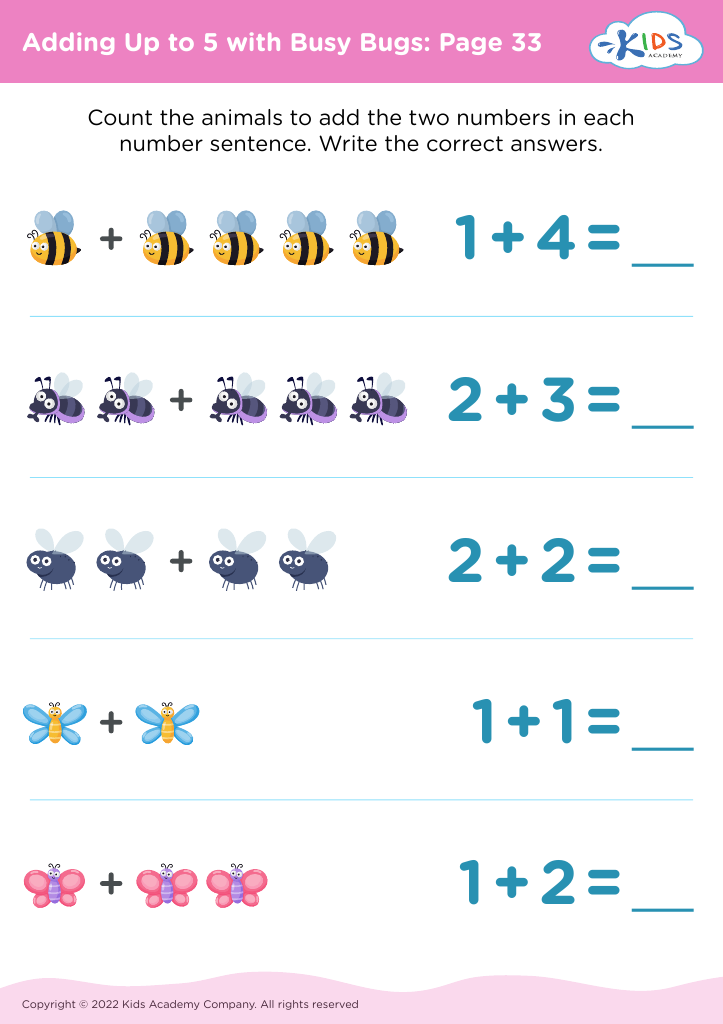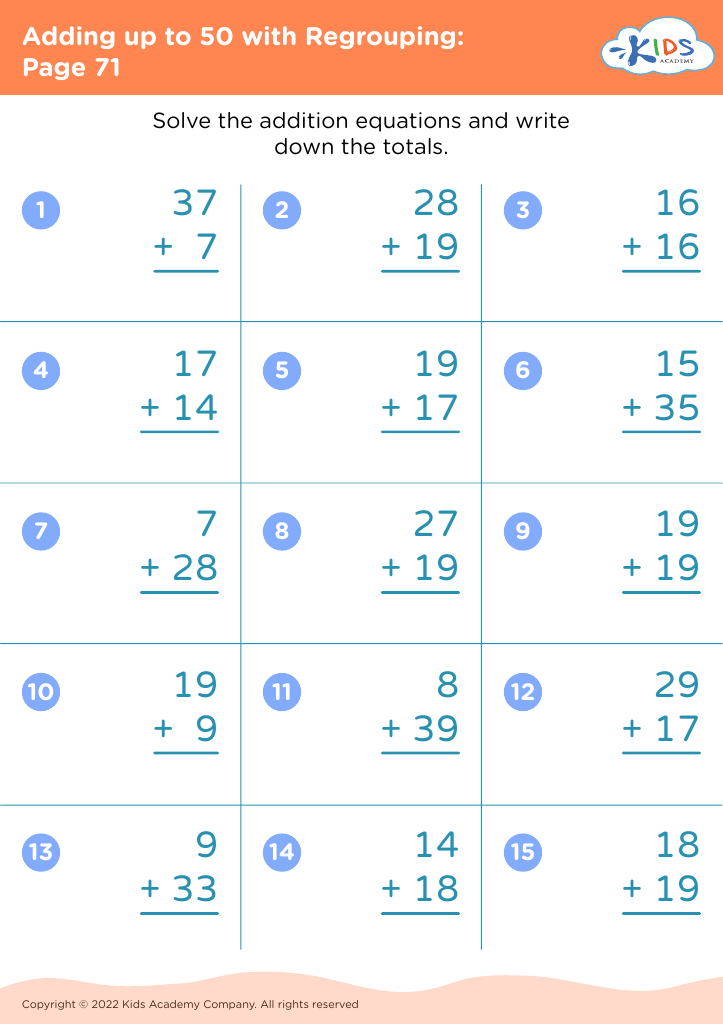Motor skills development Addition & Subtraction Worksheets for Ages 3-9
5 filtered results
-
From - To
Boost your child's fine motor skills while fostering a love for math with our Addition & Subtraction Worksheets, tailored specifically for ages 3-9. Designed by educators, these engaging worksheets ensure young learners master basic arithmetic while enhancing their dexterity and hand-eye coordination. Perfect for little hands, each activity combines playful and educational elements, providing a balanced approach to learning. With bright visuals and simple instructions, these worksheets make math practice enjoyable and rewarding. Explore our selection and watch your child develop essential skills for future academic success while having fun along the way!
Motor skills development and the understanding of basic addition and subtraction are crucial for children aged 3-9 as they lay a strong foundation for future learning and overall development. Gross and fine motor skills enable children to perform essential tasks such as writing, cutting with scissors, and even playing, which greatly influence academic achievement and social interactions. For instance, improved fine motor skills directly impact a child’s ability to grasp a pencil properly, thus aiding in better handwriting skills.
Speaking of arithmetic skills, grasping basic addition and subtraction at an early age supports cognitive development and critical thinking. Early math skills are predictive of later academic success, not just in mathematics but across all subjects. Concepts like addition and subtraction help children understand and navigate the world, enhancing their problem-solving abilities and boosting their confidence in managing simple quantitative tasks.
Therefore, parents and teachers should emphasize motor skills and basic arithmetic activities by incorporating playful, engaging methods such as games, puzzles, and hands-on activities that both capture children’s interest and foster essential skill development. Prioritizing these areas ensures that children are better equipped to excel not only in academic settings but also in everyday life, laying the groundwork for a well-rounded, successful future.




















